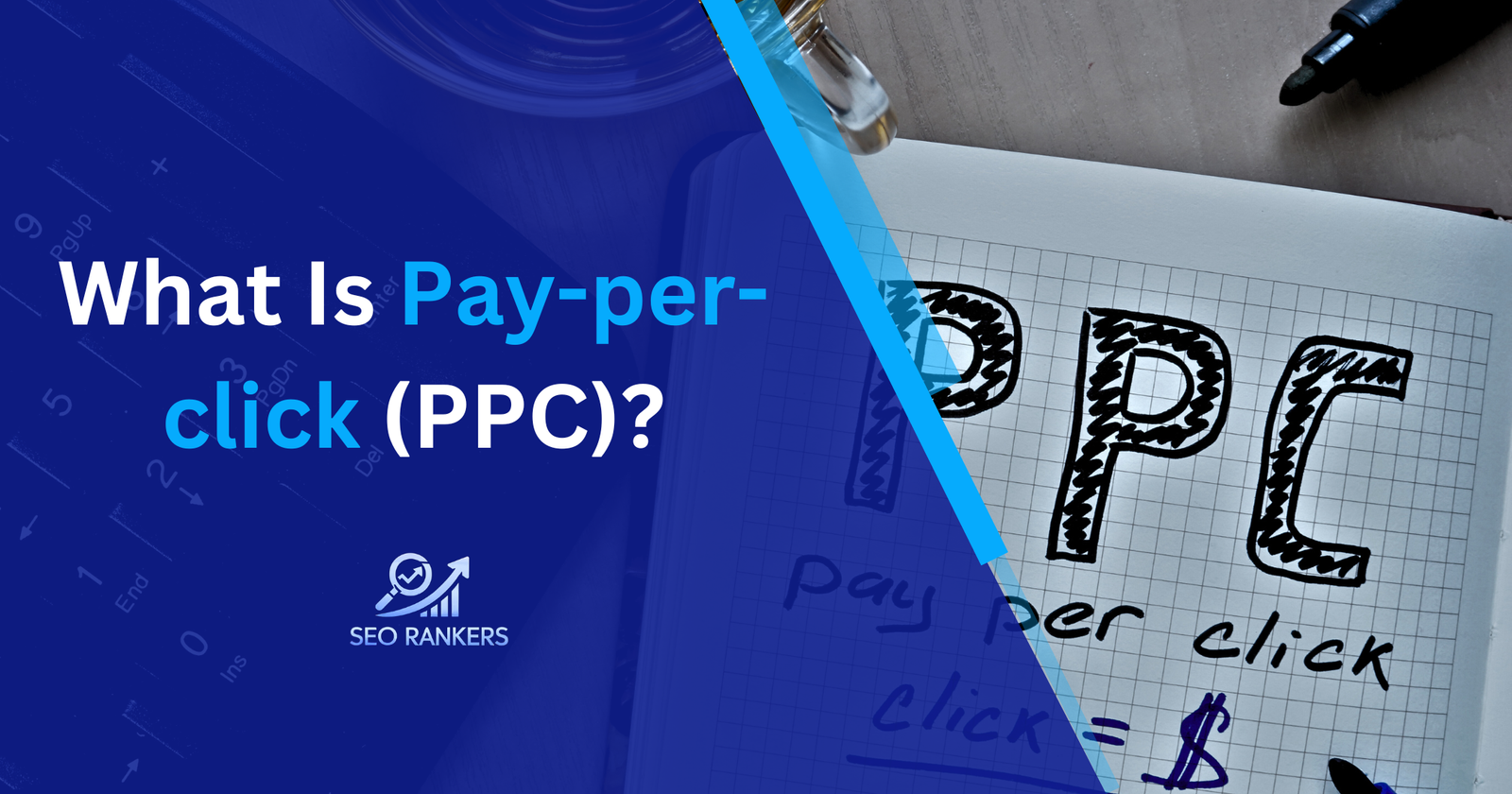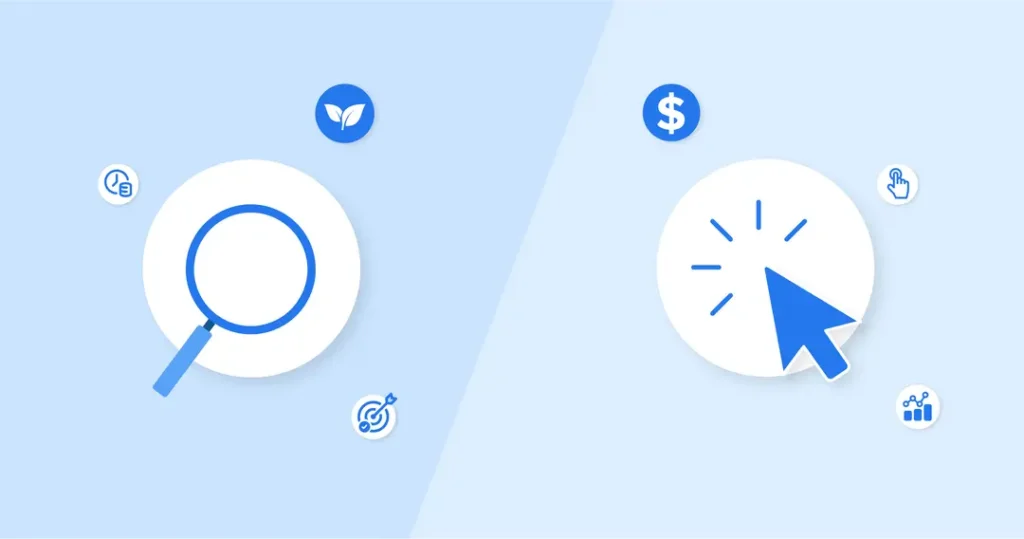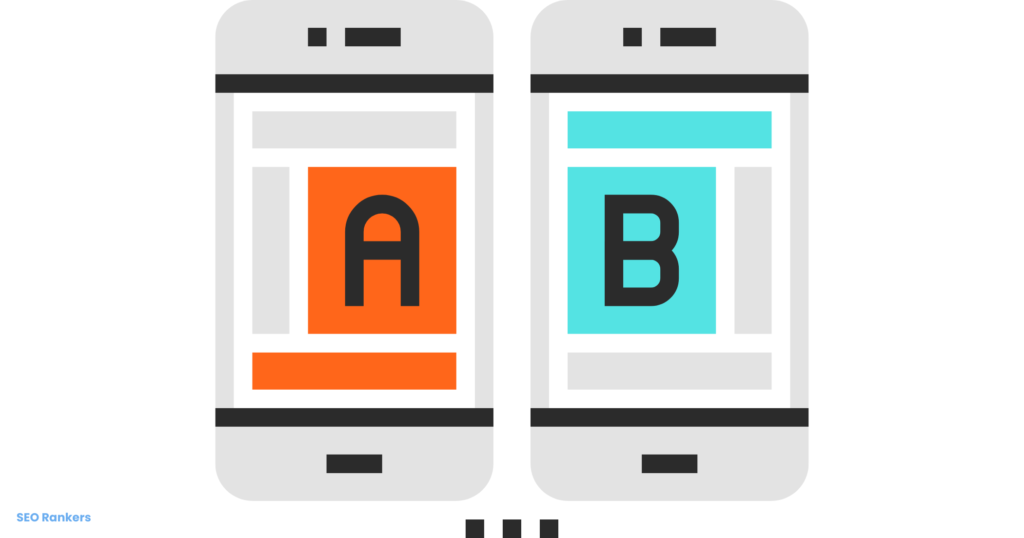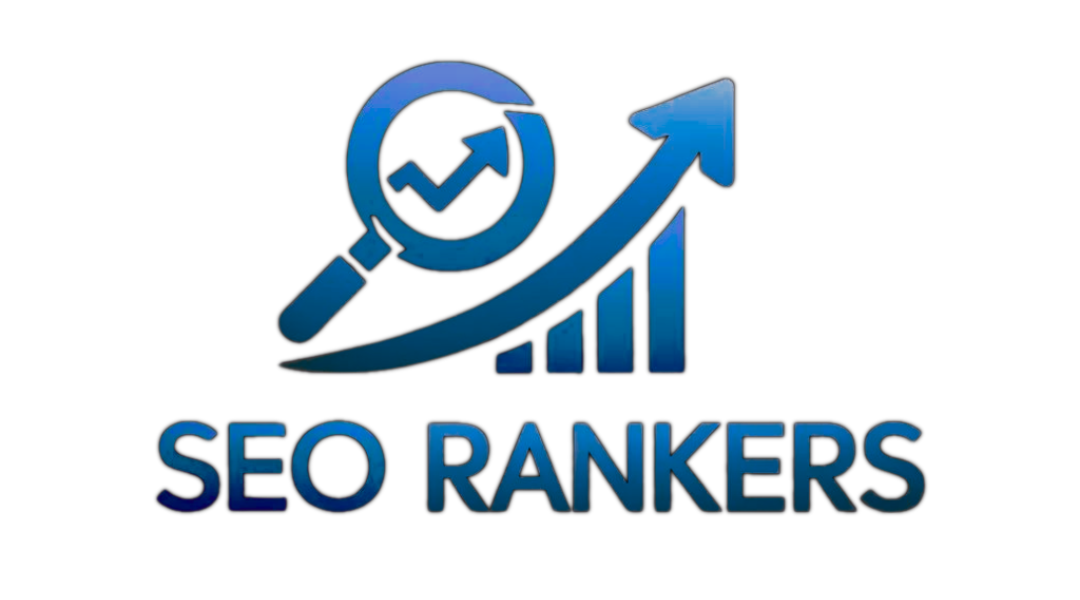
Businesses in the UAE are always looking for better ways to reach their target audience online in today’s fast-paced digital world. Pay-per-click (PPC) advertising is a vital tool that stands out. But what does PPC mean, and how can it help your business?
Pay-per-click (PPC) is a way to market online; you only pay when someone clicks on your ad. This makes it a cheap way for specific people to visit your website. Pay-per-click (PPC) can help your business quickly become more visible on social media sites and search engines like Google, whether big or small.
In this blog post, we’ll discuss What is PPC?, how it works, and why it’s an important part of any digital marketing plan in the UAE. First, let’s look at what PPC is and how it can help your online business.
What is PPC (Pay-Per-Click)?
You want to advertise your business PPC or pay-per-click is one of the best ways to do it. It lets them put ads on search engines like Google or social media sites like Facebook and Instagram. PPC is different from other types of advertising because you only pay when someone clicks on your ad. This makes it a cheap way to reach your ideal customers and get them to visit your website.
How Does Pay-Per-Click Work?
The first step is to pick buzzwords related to your business and the things you sell. Say you own a restaurant in Dubai. You could pick keywords like “best restaurants in Dubai” or “top dining experiences in UAE.” When people look for these words, your ad will show up at the top of the results. Pay-per-click gets its name from the fact that you pay a small fee every time someone clicks on your ad.
Different kinds of pay-per-click ads
Pay-per-click (PPC) ads can be text ads, show ads with pictures, or even video ads. Most of the time, people use search engine advertising, meaning their ads appear on sites like Google Ads. However, Pay Per Click (PPC) can also be used on social media to reach more people.
Why Should You Pick PPC?
Pay-per-click (PPC) is especially helpful for companies in the UAE that want to get more attention online quickly. You can ensure your ads reach the right people at the right time by targeting specific locations, hobbies, and demographics. Pay-per-click (PPC) is a flexible and practical part of your digital marketing plan whether you want to get more visitors, leads, or sales.
How Important Pay-Per-Click Is in the UAE Market
Businesses in the UAE are always looking for ways to stand out and get more online customers because the digital world is changing so quickly. Paid-per-click (PPC) advertising has become one of the best ways to reach this goal. Here’s why businesses in the UAE market need pay-per-click (PPC) ads.
Quick Results That Can Be Measured
One of PPC’s best features is the speed with which it provides results. PPC ads can immediately bring people to your website, while traditional marketing methods can take months to show results. This is very important in a market as competitive as the UAE, where businesses need to grab the attention of possible customers quickly.
Number Targeted Ads
Pay-per-click (PPC) lets you precisely reach the people you want to get. With pay-per-click (PPC), you can tailor your campaigns to get the right people if you wish to focus on places like Dubai or Abu Dhabi or on age, gender, hobbies, and behaviors. This method ensures that your ads are seen by people who are most likely interested in what you’re selling.
Marketing that doesn’t cost a lot
PPC is a cheap way to advertise in the UAE, where ads can be expensive. This helps you keep track of your money and see a clear return on your investment. This is especially helpful for small and medium-sized businesses that want to get the most out of their marketing without paying too much.
Making your brand more visible
PPC is also crucial to making a business more visible. Potential customers are more likely to see your brand if it appears at the top of search engine results or in popular social media feeds. This extra exposure could mean more hits, more leads, and, finally, more sales.
What Makes PPC and SEO Different for Your Business

Pay-per-click (PPC) and SEO (Search Engine Optimization) are two options for your business. Knowing the main differences between them can help you make a smart choice. They both try to get people to visit your website, but they do it differently. You can determine PPC Benefits and SEO Benefits differences from this:
Price
PPC: PPC stands for “pay-per-click.” With PPC, you pay every time someone clicks on your ad. The terms you choose can change the costs. The more competitive a keyword is, the higher the cost per click (CPC). For PPC to stay visible, a constant budget is needed.
SEO: SEO aims to make your website rank higher in natural search results so you don’t have to pay for clicks. Some costs are associated with SEO, like paying a professional or creating content, but the traffic from organic search results is free.
Speed of Results
PPC: PPC gives you results right away. As soon as your campaign goes live, your ads can start showing up in search results or social media sites, sending people to your website immediately.
SEO: SEO is a long-term plan that becomes useful over time. Search engines take time to figure out how authoritative and relevant your site is, so it may take months to see significant changes in your results.
Sustainable living
PPC: PPC gives you short-term exposure. You will no longer be seen once your budget runs out or you stop running ads. Pay-per-click (PPC) is excellent for short-term marketing, sales, or quickly entering a market.
SEO: SEO brings in long-lasting traffic. Once your site ranks well, it will continue to get free traffic from search engines. SEO is great for building a lasting online profile.
Options for Targeting
PPC: PPC advertising is particular. You can choose who sees your ads based on where they are, their age, gender, hobbies, and even the time of day. With this level of accuracy, you can better reach your ideal target.
SEO: SEO targets people based on what they want to find. By optimizing for relevant keywords, you can get people looking for goods or services like yours to your site. Targeting, however, is less precise than PPC and depends on how well your content matches people’s search.
Feeling in charge and having options
PPC: You have complete control over your ads with PPC. You can change the prices, stop or pause campaigns, and try out different ads to find the best ones. This gives you the freedom to quickly adjust to changes in the market or the needs of your advertising.
SEO: You have less control over SEO right away. It may take some time for changes to your website or material to show up in the rankings. It’s more important to build and keep up a strong base in SEO than to make quick changes.
You can trust and believe them
PPC: People sometimes trust paid ads less than organic results because they say “sponsored.” Still, pay-per-click (PPC) ads work, mainly when they target specific keywords with a solid commercial purpose.
SEO: People usually think they are more reliable when they use original search results. SEO is a great way to build trust with your audience because a high ranking in organic search shows that you are trustworthy and authoritative.
PPC and SEO are used for different things but can work well together. If you want quick results and can spend money on ads, pay-per-click (PPC) is the way to go. Putting money into SEO is necessary for long-term progress and steady traffic. Many businesses in the UAE are successful when they use both tactics together. This way, they can maximize each other’s strengths to reach their marketing goals and increase their online visibility.
How to Make an Effective Pay-Per-Click Campaign
A successful Pay-Per-Click (PPC) strategy needs to be carefully planned, carried out strategically, and managed regularly. Here’s a step-by-step guide on how to create and run a successful PPC project.
Write Down Your Goals
First, make it very clear what you want your PPC strategy to do. Do you want to increase the number of people visiting your website, generate more leads, increase sales, or promote a certain product? Setting clear goals will help you plan your whole campaign and monitor its performance.
Do research on keywords
Keywords are the foundation of your pay-per-click (PPC) strategy. Using tools like Google Keyword Planner, find the keywords that people in your target audience are looking for. Use a mix of long-tail and high-volume terms that fit your business. Remember to use negative keywords to eliminate unproductive traffic.
Plan your budget and how you’ll bid
Choose how much you are ready to spend on your PPC strategy. Set a daily or regular budget that fits the money you have set aside for marketing. Pick a bidding approach that helps you reach your goals, such as getting more clicks or sales or lowering your cost-per-acquisition (CPA).
Write enticing ad copy
Write an ad copy that makes people want to click on it. Your ad should have a strong title, a clear description, and an interesting call to action (CTA). Make sure the ad writing is related to the keywords you’re targeting and shows off what makes your product or service special.
Watching over and improving your pay-per-click campaign
After your Pay-Per-Click (PPC) promotion is over, the work doesn’t end. Monitoring and improving your campaign to ensure it stays effective and gives you the best return on investment (ROI) is essential. How to do it:
Check Your Campaign Metrics Often
First, pay close attention to key performance indicators (KPIs) like cost-per-click (CPC), return on ad spend (ROAS), click-through rate (CTR), and conversion rate. These metrics give you an idea of how well your promotion is doing. For instance, a low CTR could mean your audience isn’t responding to your ad copy, and a high CPC could mean you need to change how you bid.
Track your conversions
Use conversion tracking to see what people do after clicking on your ads, like buying something, subscribing to a magazine, or sending a message. This helps determine which ads, keywords, and web pages get the best results. If specific keywords get you more conversions, raise bids on those phrases.
Improve ad copy and creative
Look over and change your ad copy often to keep it fresh and useful. By A/B testing different forms of your ads, you can find out which messages work best with your audience. You could try out different headlines, calls to action (CTAs), or special deals to see what gets more clicks and sales.
Change Budgets and Bids
Make changes to your bids based on the success data you gather to make sure you get the most out of your budget. You should raise your bids for keywords that are doing well so that you can keep or improve your ad place. On the other hand, lower your bids or stop campaigns for keywords or ads that aren’t getting you the desired results.
Don’t Make These Common PPC Mistakes
Pay-per-click (PPC) campaigns can be a good way to get people to your site and get them to contact you, but it’s important to avoid common mistakes that will waste your money and make your campaign less effective. Here are some mistakes that people often make with PPC:
Ignoring Bad Keywords
Not using negative terms is one of the worst things you can do in pay-per-click (PPC). You don’t want your ads to appear for these words or phrases. For instance, if you’re offering expensive watches, you might want to block terms like “cheap” and “free.” If you don’t use negative keywords, your ads could show up for searches that have nothing to do with your business, wasting your money on clicks that won’t lead to sales.
Not Testing Different Ad Versions

Many advertisers create one ad and let it run without testing other forms. You can determine which ads work best by A/B testing different headlines, descriptions, and calls to action. To increase clicks and sales from your campaign, you must regularly improve your ad copy.
Not focusing on mobile optimization
With more and more people using smartphones, it is essential to ensure that your pay-per-click ads and landing pages work well on mobile platforms. Not doing so can lead to bad user experiences and lost sales. Ensure your landing pages work well on mobile devices, load quickly, and have an easy-to-use layout.
Setting Campaigns and Forgetting About Them
Pay-per-click (PPC) ads must be checked constantly and changed. If you start a campaign but check on it infrequently, you might save money and take advantage of chances. Review your campaign’s performance often, change your bids, stop using keywords that aren’t working, and make sure your ads are optimized to keep your campaign successful.
Final Thoughts
Pay-per-click (PPC) advertising is an excellent way for companies to quickly reach the right people and their goals. But if you want to get the most out of PPC, you should only do everyday things that people do right, like not using negative terms, ignoring mobile users, or forgetting to keep track of your results.
If you pay close attention to the little things, you can create a great PPC campaign that brings in more visitors, leads, and sales. Remember that PPC is more than just putting up ads; you need to monitor them and improve them constantly. This way, you can be sure that your ads will work well and get you the best results for your money.
FAQs
What is PPC? How does it work?
Paid-per-click, or PPC, advertising is when you pay every time someone clicks on your ad. You might see these ads on search engines like Google or on social networks like Facebook. Ads for your business show up when people look for related keywords. You get a small fee every time someone clicks on your ad.
What’s the difference between SEO and PPC?
Pay-per-click (PPC) is a paid method that gets you results quickly. Search Engine Optimization, or SEO, is changing your website to rank better in search results without paying for ads. SEO takes longer, but it can bring you free visitors over time.
How can I make my pay-per-click strategy work?
Make sure you have clear goals for your pay-per-click (PPC) strategy, like increasing visitors or sales. Pick the right buzzwords, write ads that get people’s attention, and create landing pages that match the message of your ad. Check-in on your effort often and make changes as needed to get better results.
What are some mistakes that people often make in PPC?
Some common PPC mistakes are not using negative terms (which can waste clicks), not paying attention to mobile users, and setting up your campaign without checking on it often. To ensure the best results, you need to keep trying and improving your ads.
